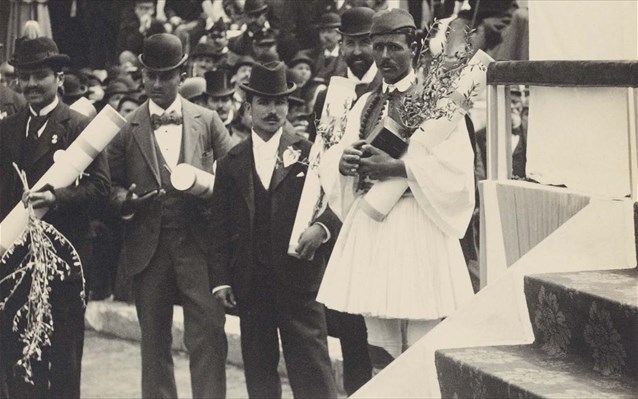
Stories Talk | Presentation Skills and Effective Storytelling
Stories Talk | Presentation Skills and Effective Storytelling
By Mia Kollia
Translated by Alexandros Theodoropoulos
Spyros Louis was the Greek marathon runner who won the gold medal in the first Marathon of the 1896 Modern Olympics in Athens. He was born in Maroussi on January 12, 1872, to a poor rural family. His father was a waterseller at a time when there was no central water supply, and Spyros helped him by carrying water. He had nothing to do with sports but during his military service he stood out for his stamina and speed.
Louis ran the marathon at the urging of his commander, Major Papadiamantopoulos, who was also a sports judge. Without making any special preparations, he managed to prevail over his opponents, being applauded by 80,000 spectators who had flooded Kallimarmaro stadium, shouting "Greek, Greek".
For the Greek people, it was an ardent desire for a Greek to win the marathon. The reason was that the Marathon was included in the Olympic program after a suggestion by the philhellene French intellectual Michel Breal, who was inspired by the route Marathon - Athens, run by Pheidippides in order to announce the victorious outcome of the battle of Marathon against the Persians.

The Greek Spyros Louis was crowned as the first Olympic marathon champion and was honored as a national hero, thus being forever part of the national and world history. The route was 40 km, starting from the town of Marathon. At two o'clock pm, four foreign athletes, twelve Greeks and Spyros Louis set up at the starting point.
The athletes had been there since the night before and according to tradition, Louis had been praying all night. The Frenchman Alben Lermisio, who had also won a bronze medal in the 1,500 meters, took the lead early. But that didn’t bother Louis. In Pikermi he stopped at a cafe and asked to drink a glass of wine, assuring everyone that he would win.
After the 32nd kilometer, Lermisio was really exhausted and collapsed. The Australian Teddy Flak, who had won a medal in 800 and 1,500 meters, took the lead. Louis began to reduce the distance, until the Australian, who wasn’t used to such long distances, collapsed a few kilometers later, leaving the Greek marathon runner to end up in first place.
This match was the first and the last for Spyros Louis, since after this victory he didn’t run again. He continued to live a quiet life in Maroussi with his family and worked as a farmer and waterseller.
However, the legend of Spyros Louis remained timeless. He was often invited to sporting events as an official guest and the public always cheered him on when he showed up dressed in his traditional Greek clothes and with a gold medal on his chest.
On August 1, 1936, he was invited by Hitler to the opening ceremony of the Berlin Olympics. Louis accepted the invitation, was photographed with Hitler and offered him an olive branch as a symbol of peace. However, he didn’t greet him in the well-known Nazi way, as did the other members of the Greek delegation.
The name of Spyros Louis has been given to the Olympic Stadium where the Athens Olympic Games were held in 2004, as well as to the street outside the stadium. The great Greek marathon runner has also been honored worldwide. In Munich, the boulevard in front of the Olympic Park (Spyridon-Louis-Ring) was named in his honor.
Spyros Louis died on March 6, 1940, at the age of 67.
#HisStory